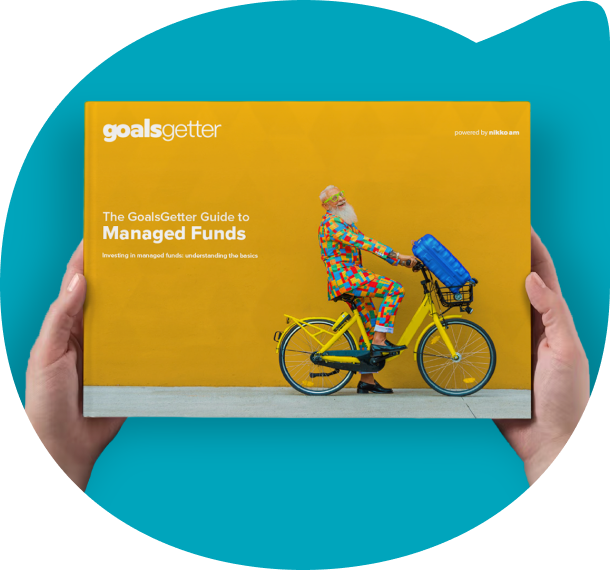10 Feb 2020
After the Lord Mayor's Show? Stuart Williams looks ahead to 2020
Following a stellar 2019 and an unexpectedly dramatic start to 2020, Nikko AM’s Head of Equity, Stuart Williams looks ahead to what the year may bring for New Zealand’s economy.
2019 was quite the year, economically, with the NZX50 up 32% and GDP growth at 2.7% (Sept annual). So should we just expect more of the same for 2020, or will there be pain to follow last year’s gain?
Happily, many of the factors supporting growth remain in place:
- Interest rates remain low, meaning New Zealanders seeking to achieve long-term savings goals and/or relatively attractive income streams should consider investing in the share market;
- our geographic isolation means that should continue to be viewed as a safe option for overseas investment; and
- irrespective of geo-political manoeuvring and its impact on trade, New Zealand companies are used to navigating a difficult path to international markets – so any fresh headwinds should not prove too diversionary.
We therefore have an abundance of things to be grateful for. However, we also have important issues, both domestic and international, to keep track of. Wage inflation is one such domestic issue worthy of examination.
While it was arguably following the lead of many companies, public and private, that had already begun to better remunerate their staff, the Government should take credit for increasing the minimum wage. Legislated minimum wage increases (the next increase taking effect on 1 April 2020) and the pay equity settlement have served to push wage inflation all the way up to the $70-80K p/a wage bracket. The positive net impact of increasing wages on the tax and transfer system flows into lower entitlements and abatements, student loans, KiwiSaver, PAYE and company taxes.
The impact of wage legislation on New Zealand’s critical SME sector is an element to monitor closely in the year ahead. Upcoming profit announcements for our listed companies should give an early indication as to whether they have sufficient pricing power to offset these wage increases. The importance of monitoring both the Producer Price Index (PPI), which excludes wage inflation, together with the Consumer Price Index, cannot be under-estimated. The PPI – or cost of doing business – has been increasing rapidly. Combined with wage inflation, this will be a headwind for business in 2020.
Sentiment has always been an important economic metric – and the sentiment associated with increased wages is broadly positive, contributing immediately and in a tangible way. It lifts workers spirits; it carries people along with the view (and my view) that New Zealand is going well; and it assists social cohesion. That it challenges some businesses’ profit margin is, broadly speaking, an acceptable trade-off.
Looking at global economic influences, we – like most of the world – entered 2020 fixated on the impending US election, the impeachment hearings and Brexit, only to have the Coronavirus disrupt our focus. Comparisons to the SARS outbreak of 2003 are not that useful a barometer, given the enormous increase in Chinese interconnectivity globally in the intervening 17 years – and the speed and manner with which the world has reacted to the outbreak reflects China’s global economic importance today. Here in New Zealand, given the considerable economic boost provided by China via our tourism and education sectors, it’s also a stark reminder of our vulnerability to the unexpected and the dangers of allowing too many eggs to be carried in the one basket.
Notwithstanding the immediate shock to the system from the Coronavirus, over a longer term horizon there remains little for us to fear economically. The New Zealand economy and businesses remain attractive to all stakeholders, local and international. This supports our share market, our property market, our fixed interest market, our Government and our society.
And so what should we be expecting for 2020? Well, certainly not a further 32% rise. But with the world addicted to low interest rates and prices for real assets in New Zealand remaining firm, anything up to a high single-digit return seems likely – thus continuing the positive trend. The show, as they say, must go on.
Nikko Asset Management New Zealand Limited (Company No. 606057, FSP22562) is the licensed Investment Manager of Nikko AM NZ Investment Scheme, Nikko AM NZ Wholesale Investment Scheme and the Nikko AM KiwiSaver Scheme. This material has been prepared without taking into account a potential investor’s objectives, financial situation or needs and is not intended to constitute personal financial advice, and must not be relied on as such. The Product Disclosure Statements are available on our website: https://www.nikkoam.co.nz./invest/retail.
.jpg?width=754&name=iStock-1222713269%20(1).jpg)



.webp?width=362&name=green%20coins%20(1).webp)
